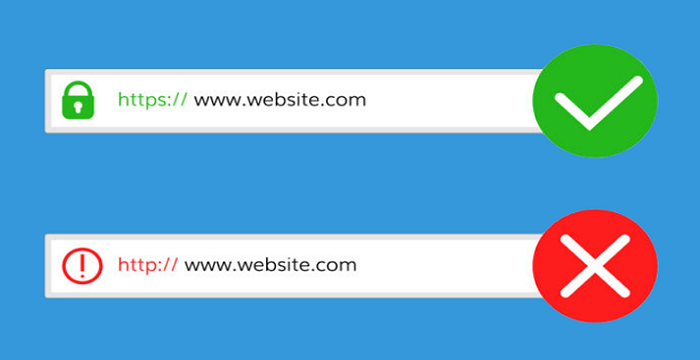Ranking Factors describes the criteria applied by search engines when evaluating web pages in order to compile the rankings of their search results. Understanding ranking factors is a prerequisite for effective search engine optimization.
If you want your Google rankings to go from unseen to the top of the list, you have to be in the know. Well-optimized sites get more and more traffic over time, and that means more leads and sales.
In this blog, I am going to share the essential SEO ranking factors you need to dominate search results.

#1 A Secure and Accessible Website
It’s very important to have a right kind of URL, if you want to rank in top of Google search results. In other words, Google has to be able to visit the URL and look at the page content to understand what that page is about. To help the bots out, you’ll need:
- A website created with a well-coded website builder
- A robots.txt file that tells Google where it can and can’t look for your site information
- A sitemap that lists all your pages
If you’re running a Word Press site, you can set up a sitemap via Yoast SEO. If not, then you can use an online sitemap generator.

#2 Domain Age, URL, and Authority
This ranking factor might not be something you can control, but it’s worth mentioning.
Did you know that nearly 60% of the sites that have a top ten Google search ranking are three years old or more?
- Domain age, or how old your website is, often considered a ranking factor. While Google doesn’t clearly state this as one of its SEO ranking factors, research has found that older domains tend to rank better.
- So if you launch a brand-new site, know that it will take time for your SEO efforts to kick in. With time and continual SEO work, your site will improve its search ranking, but it won’t happen overnight.
#3 Optimized Content
Content is one of the most important SEO ranking factors. Search engines want to provide the best results possible, so they give top rankings to sites that have well-researched, in-depth, and well-crafted content.

- To attract search engines to your content, you also need to consider on-page SEO factors. On-page SEO is the process of optimizing each individual page on your site for a target keyword.
- By optimizing your content for one specific keyword, you tell the search engines what the page is about and what it should rank for.
- Assign one unique keyword to each page on your site. Then, optimize the content for on-page SEO best practices.
#4 Mobile-Friendliness
Google’s mobile-first index is now a reality, which means it’s drawing its results from mobile-optimized sites first, rather than sites geared to desktop computers.
Mobile-friendliness is another major SEO ranking factor. More people use mobile devices than desktops to access the web.
Mobile-friendly sites provide good user experience by using a responsive design that adjusts the content so that it looks good on every screen size. Because more searches are conducted on mobile devices than desktops.
To see if your site is responsive, submit your site to Google’s Mobile-Friendly Test. It will report back any issues with the mobile version of your site.
#5 User Engagement
Google’s been using artificial intelligence to better rank web pages. It calls that signal RankBrain. This includes other signals that affect your search engine ranking.
- Click-through rate: the percentage of people who click to visit your site after an entry comes up in search results.
- Bounce rate: the number of people who click on your page and quickly go back to the search results.
- Dwell time: how long visitors stay on your site after they’ve arrived.

These metrics help search engines determine if a search result is valuable to users, so optimize both your site content and search snippets to boost user engagement.
- Use high-quality website design and graphics.
- Use internal links to help users easily navigate through your site.
- Use Meta Tag SEO to craft compelling titles and descriptions for your search results snippets.
- Optimize your content for featured snippets in search.
#6 Page Speed (Including Mobile Page Speed)
Page speed has been cited as one of the leading SEO ranking factors for years. Google wants to improve users’ experience of the web, and fast-loading web pages will do that.
Google announced a search engine algorithm update focused on mobile page speed that started to affect sites from July 2018. If your site doesn’t load fast on mobile devices, then it could be penalized.
So you need to keep your page speed high for ranking high and better user experience.
#7 Backlink Factors
Backlinks are another signal that tells search engines that a website is credible and authoritative. The number and quality of links pointing to your site is an off-page SEO factor that has a significant impact on your search rankings.
Backlinks are often considered to be the second most important SEO ranking factor. If you want your site to rank, you need a plan for building high-quality backlinks for your site through practices such as guest posting, link acquisition, digital PR, and other link building strategies.

There are three kinds of links to think about:
- Inbound links
- Outbound links
- Internal links
#8 The Right Target Keywords
Don’t go blindly into content creation. Strategically create content by performing keyword research to tell you what keywords to target and topics to cover.
Keyword research is the process of identifying popular keywords that can drive traffic to your site.

Google ranks keywords to help you choose the best keywords for your content. If you want Google to rank your keywords then you need to focus on these 3 tips:
- Target long tail keywords. As voice search grows in popularity, more people are searching for long phrases and questions. Use more long tail keywords (keywords that are three or more words) in addition to shorter generic keywords to target in your content.
- Understand keyword search intent. Google boosts rankings for pages that have content that matches keyword intent, so be sure you understand how different types of keywords map to different types of content, in different parts of the purchase funnel.
- Target terms within your site’s competitive range. Some keywords are extremely competitive and will be difficult to rank for. Focus on keywords that are within your site’s competitive range. Plan to identify terms that are within your competitive ability easily.
I hope now your site is ready to optimize for higher ranking with these top ranking factors of SEO which are very important specially in 2020.
5 Comments
Khushboo manwani · July 24, 2020 at 8:49 am
Amazeeee!!!
Drishti lalwani · July 25, 2020 at 6:46 pm
Nice content ?
Sonal jain · July 25, 2020 at 8:26 pm
Informative content
Divya · July 25, 2020 at 9:49 pm
Informative content
Yashika · July 26, 2020 at 7:01 pm
Nice cpntent.